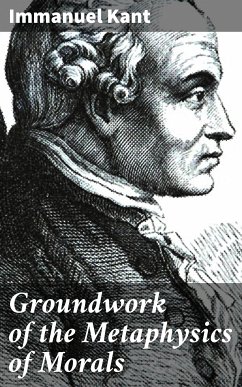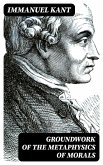In "Groundwork of the Metaphysics of Morals," Immanuel Kant presents a seminal exploration of moral philosophy, laying the foundation for his ethical theory. The text is structured as a rigorous philosophical inquiry into the nature of moral imperatives, emphasizing the concepts of duty and the categorical imperative. Kant employs a clear, systematic style that seeks to establish universal moral principles grounded in rationality, distinguishing between hypothetical and categorical imperatives, and advocating for autonomy in ethical decision-making. This work is pivotal within the broader context of Enlightenment thought, engaging with and countering contemporary moral philosophies while championing reason as the basis for moral law. Immanuel Kant (1724-1804), the eminent German philosopher, is a central figure in modern Western philosophy, influencing fields beyond ethics, including epistemology and metaphysics. His upbringing in a Pietist household instilled in him a profound sense of duty and ethical inquiry. Kant's intellectual path was marked by a desire to reconcile empiricism and rationalism, leading him to examine the moral dimensions of human experience and the foundations of rational thought, ultimately culminating in the formulation of his ethical theories in this influential text. This book is essential for readers seeking to delve into the complexities of ethical philosophy. Kant's meticulous reasoning and profound insights offer valuable tools for understanding moral dilemmas, while his call for universal moral laws resonates with contemporary philosophical discourse. "Groundwork of the Metaphysics of Morals" is not merely a historical document, but a vital work that challenges readers to reflect on the nature of morality, autonomy, and responsibility in their own lives.
Dieser Download kann aus rechtlichen Gründen nur mit Rechnungsadresse in A, B, BG, CY, CZ, D, DK, EW, E, FIN, F, GR, H, IRL, I, LT, L, LR, M, NL, PL, P, R, S, SLO, SK ausgeliefert werden.









